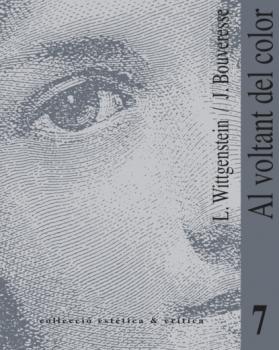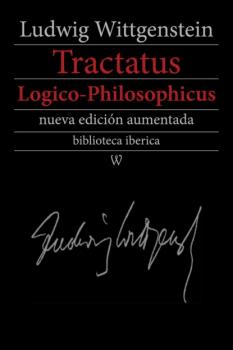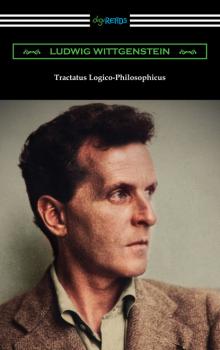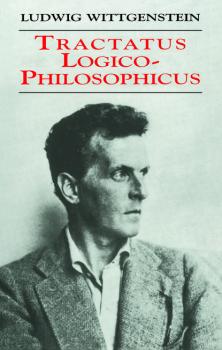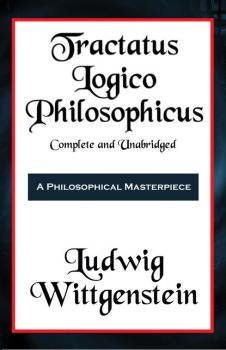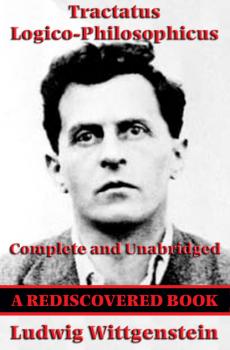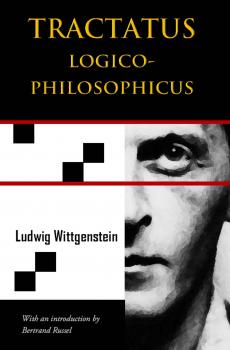Ludwig Wittgenstein
Список книг автора Ludwig WittgensteinAl voltant del color
Aquest llibre acull, sota el títol Al voltant del color, dos textos diferents: Observacions sobre els colors de Ludwig Wittgenstein i La pregunta «què és el color?», la ciència, la filosofia, i la resposta de Wittgenstein de Jacques Bouveresse.
Tractatus Logico-Philosophicus
El Tractatus Logico-Philosophicus es el título de una obra de Ludwig Josef Johann Wittgenstein. Resultado de sus notas y de correspondencia mantenida con Bertrand Russell, George Edward Moore y Keynes, escritas entre 1914–1916, mientras servía como teniente del ejército austro-húngaro y, posteriormente, como prisionero de guerra en Italia, durante la Primera Guerra Mundial. El texto evolucionó como una continuación, y una reacción a las concepciones de Russell y Frege, sobre la lógica y el lenguaje. Aparecido originalmente en alemán, en 1921, bajo el título de Logisch-philosophische Abhandlung, después en inglés un año más tarde, con el título actual en latín. Junto a sus Investigaciones filosóficas, este texto es una de las obras mayores de la filosofía de Wittgenstein. Obra bastante breve en extensión (alrededor de 70 páginas) pero muy compleja, el Tractatus, dio lugar a numerosas interpretaciones. Mientras que el significado más profundo del texto era ético para Wittgenstein, la mayor parte de las lecturas han destacado su interés para la lógica y la filosofía del lenguaje. No fue, sino, hasta mucho más tarde, que estudios más recientes han empezado a destacar el aspecto místico de la obra como algo central.
Tractatus Logico-Philosophicus
First published originally in German in 1921, “Tractatus Logico-Philosophicus” is the only book-length philosophical work by Austrian philosopher Ludwig Wittgenstein published during his lifetime. Based upon notes made during his time serving in World War I, the treatise is composed of 526 numbered declarative statements that are presented without argument and were seen by Wittgenstein as being self-evident. Wittgenstein’s style is succinct and sparse and his ideas are presented in a highly logical, organized, and scientific manner. Wittgenstein proposes that the solution to all major philosophical problems can be solved only with logic and a scientific analysis of language and its meaning. His idea that philosophy is not about metaphysics and mysticism, but about critical and rational thought led to a massive shift in philosophical theories after its publication. The treatise was influential with many of the “logical positivists” of the Vienna Circle, such as Rudolf Carnap and Friedrich Waismann, and to philosophers such as Bertrand Russell. Considered one of the most significant and influential philosophical works of the twentieth century, this treatise is an important read for any student of the history of language and ideas.
Tractatus Logico-Philosophicus
"Philosophy is not a theory," asserted Austro-British philosopher Ludwig Wittgenstein (1889–1951), «but an activity.» In this 1921 opus, his only philosophical work published during his lifetime, Wittgenstein defined the object of philosophy as the logical clarification of thoughts and proposed the solution to most philosophic problems by means of a critical method of linguistic analysis. In proclaiming philosophy as a matter of logic rather than of metaphysics, Wittgenstein created a sensation among intellectual circles that influenced the development of logical positivism and changed the direction of 20th-century thought.Beginning with the principles of symbolism and the necessary relations between words and objects, the author applies his theories to various branches of traditional philosophy, illustrating how mistakes arise from inappropriate use of symbolism and misuses of language. After examining the logical structure of propositions and the nature of logical inference, he discusses the theory of knowledge as well as principles of physics and ethics and aspects of the mystical.Supervised by the author himself, this translation from the German by C. K. Ogden is regarded as the definitive text. A magisterial introduction by the distinguished philosopher Bertrand Russell hails Wittgenstein's achievement as extraordinarily important, «one which no serious philosopher can afford to neglect.» Introduction by Bertrand Russell.
Tractatus Logico-Philosophicus (with linked TOC)
"Tractatus Logico-Philosophicus may be the most important book of philosophy written during the twentieth century. Wittgenstein's writing style is clear, succinct, and accessible. Bertrand Russell claimed that «I cannot see any point on which it is wrong. But to have constructed a theory of logic which is not at any point obviously wrong is to have achieved a work of extraordinary difficulty and importance.» Required ready for anyone interested in philosophy." Wilder Publications is a green publisher. All of our books are printed to order. This reduces waste and helps us keep prices low while greatly reducing our impact on the environment.
Tractatus Logico-Philosophicus (Rediscovered Books)
'Tractatus Logico-Philosophicus' may be the most important book of philosophy written during the twentieth century. Wittgenstein's writing style is clear, succinct, and accessible. Bertrand Russell claimed that, «I cannot see any point on which it is wrong. But to have constructed a theory of logic which is not at any point obviously wrong is to have achieved a work of extraordinary difficulty and importance.» Required reading for anyone interested in philosophy.
Tractatus Logico-Philosophicus (Chiron Academic Press - The Original Authoritative Edition)
THE TRACTATUS LOGICO-PHILOSOPHICUS is the only book-length philosophical work published by the Austrian philosopher Ludwig Wittgenstein in his lifetime. The project had a broad aim – to identify the relationship between language and reality and to define the limits of science – and is recognized as a significant philosophical work of the twentieth century. Wittgenstein wrote the notes for the Tractatus while he was a soldier during World War I and completed it when a prisoner of war at Como and later Cassino in August 1918. It was first published in German in 1921 as 'Logisch-Philosophische Abhandlung'. The Tractatus was influential chiefly amongst the logical positivists of the Vienna Circle, such as Rudolf Carnap and Friedrich Waismann. Bertrand Russell's article «The Philosophy of Logical Atomism» is presented as a working out of ideas that he had learned from Wittgenstein. (more on: www.wisehouse-classisc.com)
